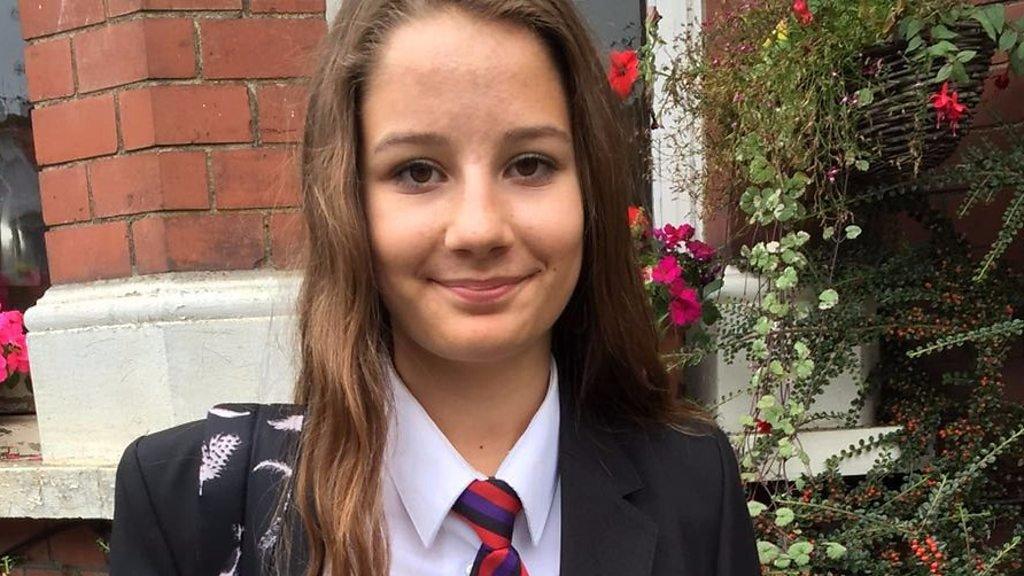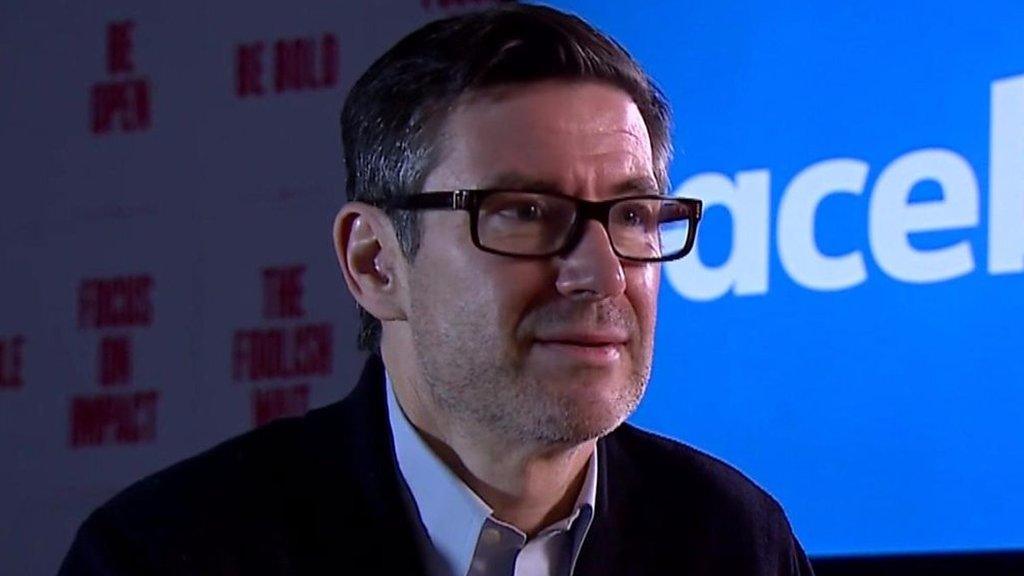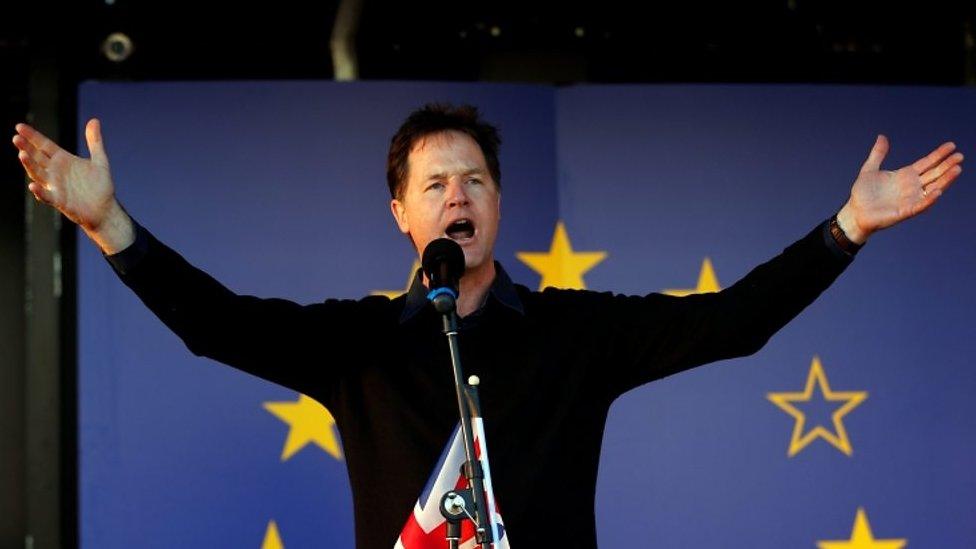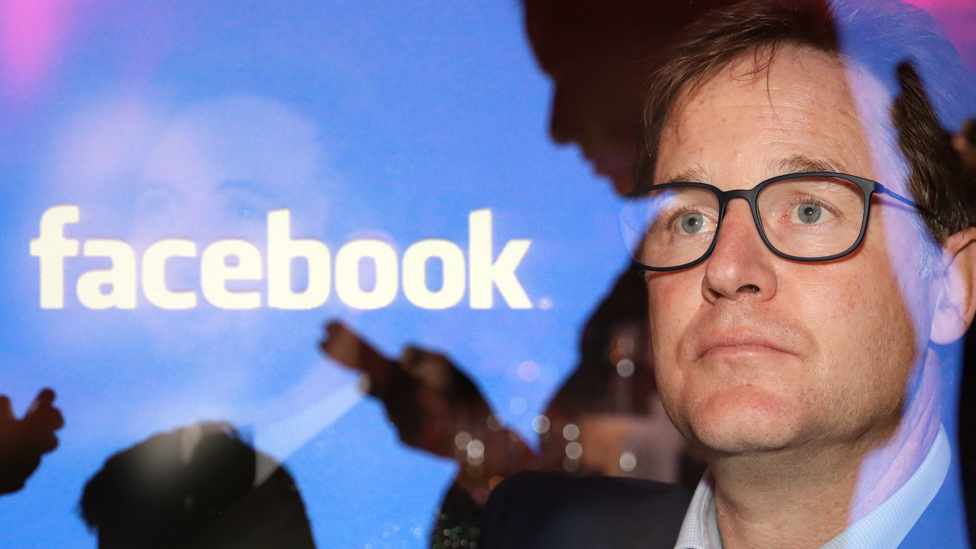Can Nick Clegg help Facebook grow up?
- Published
Nick Clegg: Facebook will do 'whatever it takes' to make the platform safer for vulnerable people
When interviewed, anyone starting a new job has an advantage over colleagues who have been in post for a long time: they can plausibly say that historic mistakes weren't their fault.
Sir Nick Clegg deployed this advantage to full effect today. On several issues where I was expecting to meet resistance, and therefore have to push him, he instead put his hands up and acknowledged error.
On tax, he said the current system isn't working and needs to change. On the broader issue of regulation, he said that it's no longer sustainable for tech companies to say they don't like any or all regulation.
These words - and the fact that he agreed to be interviewed at all - are part of a more open and conciliatory tone the company wants, through him, to adopt.
Being the new boy who can soak up some of the pressure is clearly one part of his new role.
Another key part is explaining Europe to Facebook, and explaining Facebook to Europe. That's why he gave his first speech in Brussels, just yards from where he used to work.
Facebook is 15 on Monday. Critics argue that its impulsive behaviour, historic recklessness over privacy, and constant utopianism are that of a teenager - by turns moody and dreamy.
Clegg, who acknowledges the company is in a bad place on a range of issues, is casting himself as the adult who can make this young company grow up.
So much for the theory. What about the practice? On the awful issue of self-harm, he repeated the plan that Instagram has for addressing those images seen by Molly Russell, and striking a balance whereby those issuing a plea for help are still able to do so.
It is true that Facebook has made significant moves on transparency, in letting users know who is targeting them.
But the impression persists that Mark Zuckerberg's astonishing innovation has unleashed something he and his team can't control. It is in the very nature of this technology that it throws up unforeseeable threats.
Tackling those we know about is just the beginning of a democratic response to this new form of power.
That's the sub-plot of my interview with Sir Nick, which was done under time constraints.
- Published28 January 2019

- Published22 January 2019

- Published23 January 2019

- Published19 October 2018
- Published19 October 2018

- Published19 October 2018
